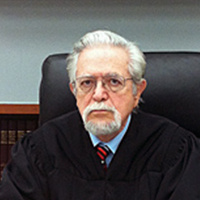La Palma Real Estate Lawyer, California, page 3
Sponsored Law Firm
-
 x
x

Click For More Info:
-
Law Offices Of Anthony Abbott
375 S. Rancho Santa Fe Rd. 105 San Marcos, CA 92078» view mapReal Estate Over 50 Years Of Experience
The Law Offices of Anthony Abbott has been working for the people in the great state of California for over 50 years.
800-497-8821
Larry Wayne Weaver
Construction, Real Estate, Corporate, Business
Status: In Good Standing Licensed: 44 Years
Darin Robert Dominguez
Real Estate, Litigation, Lawsuit & Dispute, Employee Rights
Status: In Good Standing Licensed: 29 Years
Michael Anthony Meyer
Commercial Real Estate, Real Estate, Environmental Law, Employment
Status: In Good Standing Licensed: 23 Years
Heidi Elizabeth Dudderar
Real Estate, Corporate, Land Use & Zoning
Status: In Good Standing Licensed: 26 Years
 Anthony Abbott San Marcos, CA
Anthony Abbott San Marcos, CA
